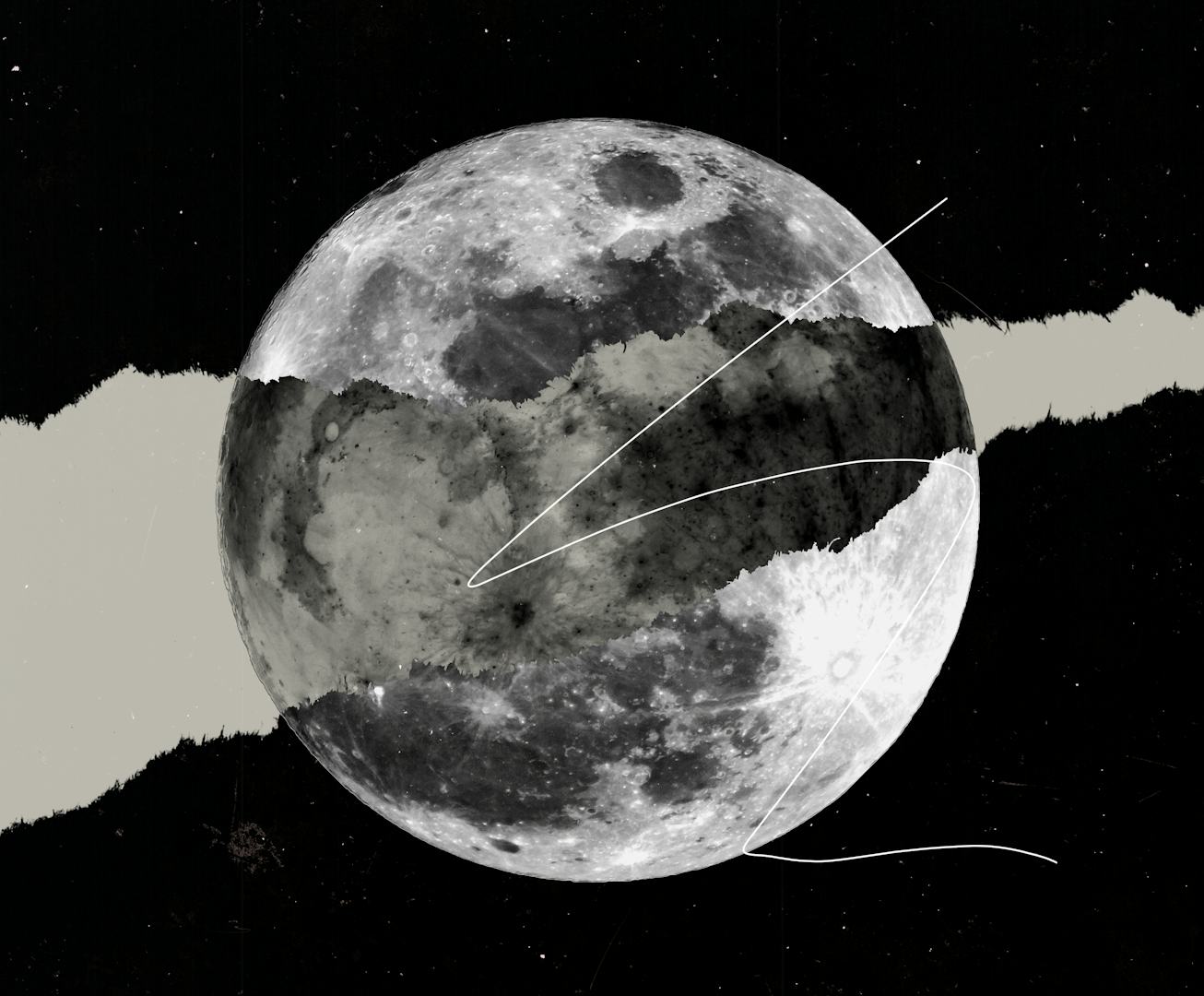
life
The New Moon In Sagittarius Blurs Feelings And Facts
How hard are we willing to dig to get to the truth of the matter, and why should it matter to us?
During an ordinary new moon, the moon and the Sun form a united front. There is a sense that feeling and fact do not exist in different realms — that reality is aligned with our experience of it. This kind of clarity, of alignment, makes most new moons a great time to initiate projects; if we align ourselves with the cycle of the new moon, we begin something new as well. But December’s new moon isn’t like all other new moons: It’s a total solar eclipse which will be fully visible along a narrow path through the South Pacific, Chile, Argentina, and parts of the Southern Atlantic Ocean.
It’s well-known that eclipse season is hardly the time to plunge into uncharted waters. Even if you won’t get to see the ringed majesty of this December’s solar eclipse, you’re still sensitive to its influence. Eclipses have big reputations and they tend to live up to them, dragging what’s unseen to the surface and casting doubt on what’s familiar. During a solar eclipse, the moon stations directly between our Earth and the Sun. The planetary body that rules our intuition and our emotional regulation positions itself between our sense of what is and our experience of corporal reality. The fact that this season’s solar eclipse forms a square to Neptune only serves to further blur the lines between what we feel and what is fact.
So, what is fact? A series of events reported along a timeline, an agreed upon narrative, a place that lives steadily between the nuance of different perspectives and documentation. Many things, including history, are not facts, although they are presented as such. The 13th Amendment, for instance — that kept a clause for convict leasing, which was still in effect into the 1930s and can still be seen in the labor conditions of prisons today — is still widely regarded (by white people) as the end of slavery in the United States. Facts, if we dig hard enough, are personal. So, how hard are we willing to dig to get to the truth of the matter and why should it matter to us?
Our Sagittarian solar eclipse makes a trine to Mars in Aries, and that kind of setup can boast a great deal of over-confidence. A lot of acting now and asking questions later. But, how can we practice right action when we don’t have all the facts we need, or when we find our facts are fragile when we dig harder, do better? With Mercury making the same aspect to Mars and positioned up against the moon, communication is a key but it’s not the only one. Check your sources and think twice, dear reader, whether you’re making an informed decision that affects a household or you’re letting gossip and word of mouth influence your relationships.
Our last solar eclipse phase occurred between Cancer and Capricorn, coinciding with Saturn’s transit into Capricorn and conjunction with Pluto. Our last total solar eclipse was in Cancer on July 2, 2019. Who were you that summer? Recall what you believed about yourself, your heart, your country. What needed to change about your relationships? What remained true? This year’s total solar eclipse occurs a week before Jupiter and Saturn meet in Aquarius — another major conjunction. Not Pluto, this time, but Jupiter — modern ruler of Sagittarius — associated with expansion, abundance, and risk.
Saturn can be a cruel disciplinarian, but not all lessons have to learned the hard way. Mercury rules Gemini and this solar eclipse in Sagittarius is part of an eclipse phase that began November 30 in Gemini and lasts until the lunar eclipse in Sagittarius on May 26, 2021. The journey between Sagittarius and Gemini, which sit opposite each other on the Zodiac wheel, is the journey between knowledge and wisdom. Gemini trades in information, in gathering data, in being out in the field. Sagittarius wants to understand the process by which what we know becomes what we believe — and when what we believe is hindered by what we do not know.
Sometimes, all we really need to do is admit that we need more information — that we don’t know everything no matter how wise we feel.
This article was originally published on